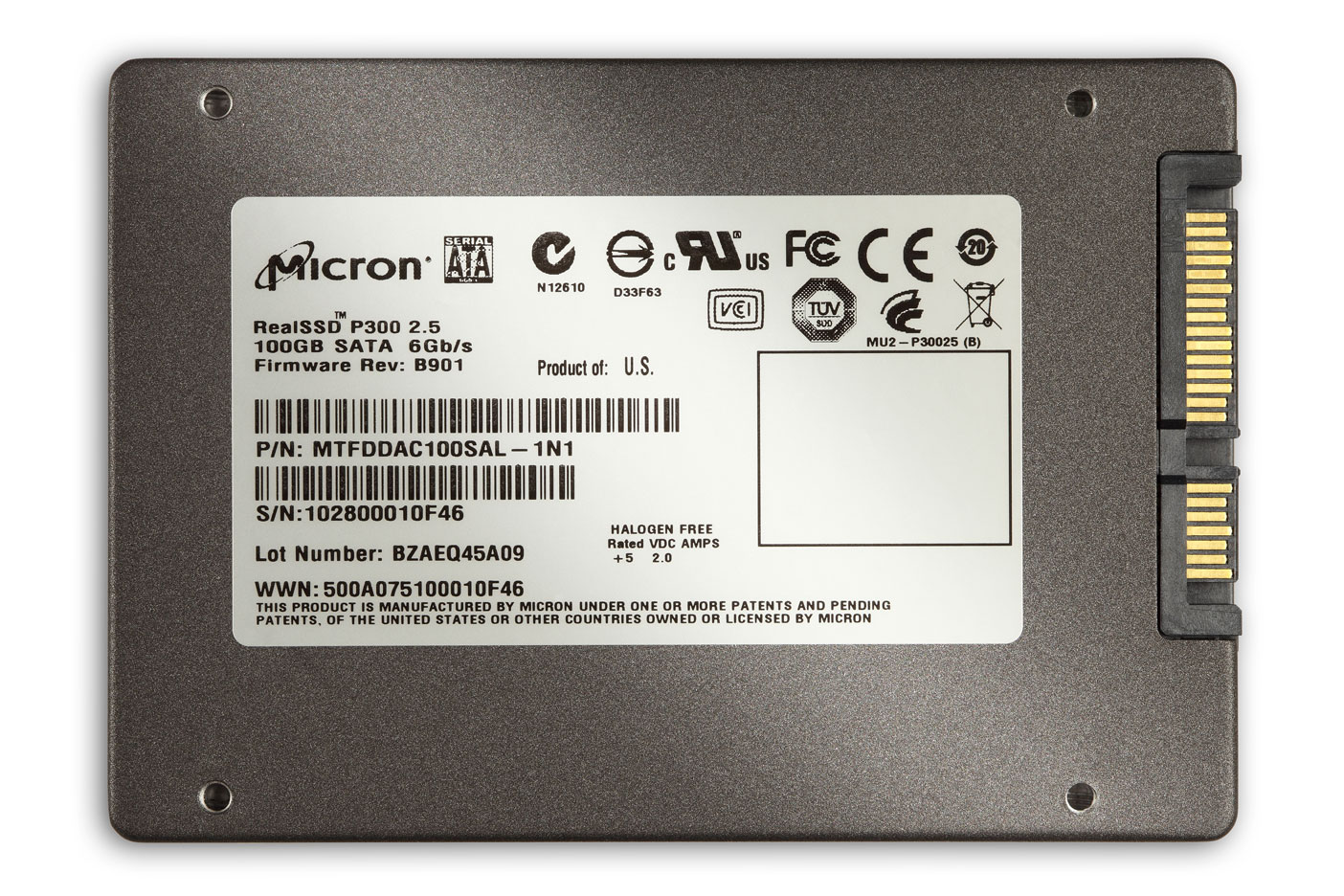Micron Enterprise SSD is ''Fastest SATA Drive''
Micron says its upcoming RealSSD P300 will be the fastest in the enterprise sector.
Micron Technology revealed on Thursday its first enterprise-class solid-state drive (SSD), the RealSSD P300. Touted as the fastest SSD in the enterprise sector, the new 2.5-inch drive will use higher-end single-level cell (SLC) NAND flash memory and an SATA 6Gb/s interface, the latter serving as a first for the enterprise SSD market.
According to the company, the RealSSD P300 will achieve a read throughput speed of up to 360 MB/s and a write throughput speed of up to 275 MB/s. The consumer version--Micron's C300 which was already made available--uses multi-cell (MLC) NAND flash memory and features sequential read speeds of up to 355 MB/s and write speeds of up to 215 MB/s.
"The ever-expanding workload of today’s enterprise environments requires the technology within to be able to withstand the rigors of data being constantly accessed, transferred and stored," the company said. "The RealSSD P300 drive was designed specifically to address these requirements by using Micron’s high-performance and high-endurance ONFI 2.1 34-nanometer (nm) single-level cell (SLC) NAND technology, ensuring product longevity and added reliability in today’s demanding enterprise environments."
Micron added that the new SSD is targeted primarily for blade and conventional servers, storage arrays and high-end workstations. The company even boasts that the RealSSD P300 can outperform a RAID of twelve hard drives "in some cases." The drive is slated to ship in October, and will arrive in three capacities: 50 GB, 100 GB, and 200 GB. Micron did not provide pricing at the time of this writing.
Get Tom's Hardware's best news and in-depth reviews, straight to your inbox.

Kevin Parrish has over a decade of experience as a writer, editor, and product tester. His work focused on computer hardware, networking equipment, smartphones, tablets, gaming consoles, and other internet-connected devices. His work has appeared in Tom's Hardware, Tom's Guide, Maximum PC, Digital Trends, Android Authority, How-To Geek, Lifewire, and others.
-
insider3 ReplyThe company even boasts that the RealSSD P300 can outperform a RAID of twelve hard drives "in some cases.
That's just ridiculous (In a good way). I wonder what the price range would be for this thing. -
JasonAkkerman RAID 0 SSD's is a dangerous waste of money. SSD's real advantage are their IO ops, which isn't going to be enhanced by RAID. The real advantage to RAID is the throughput. In this case especially, the added throughput is not going to help the average gamer/enthusiast. It is surly not worth the risk of losing one of the drives and losing all your data.Reply -
Grims JasonAkkermanRAID 0 SSD's is a dangerous waste of money. SSD's real advantage are their IO ops, which isn't going to be enhanced by RAID. The real advantage to RAID is the throughput. In this case especially, the added throughput is not going to help the average gamer/enthusiast. It is surly not worth the risk of losing one of the drives and losing all your data.Reply
And SSD, let alone an Enterprise SSD is very unlikely to fail. -
thebigt42 JasonAkkermanRAID 0 SSD's is a dangerous waste of money. SSD's real advantage are their IO ops, which isn't going to be enhanced by RAID. The real advantage to RAID is the throughput. In this case especially, the added throughput is not going to help the average gamer/enthusiast. It is surly not worth the risk of losing one of the drives and losing all your data.Im not the average enthusiast ;pReply -
JasonAkkerman GrimsAnd SSD, let alone an Enterprise SSD is very unlikely to fail.Reply
It's your data. You choose what risk level you want to live with. RAID 0 is just a bad choice for SSD's. Real enterprise solutions would be RAID 5 or 6 based. Given the added safety of parity those are both acceptable solutions.
